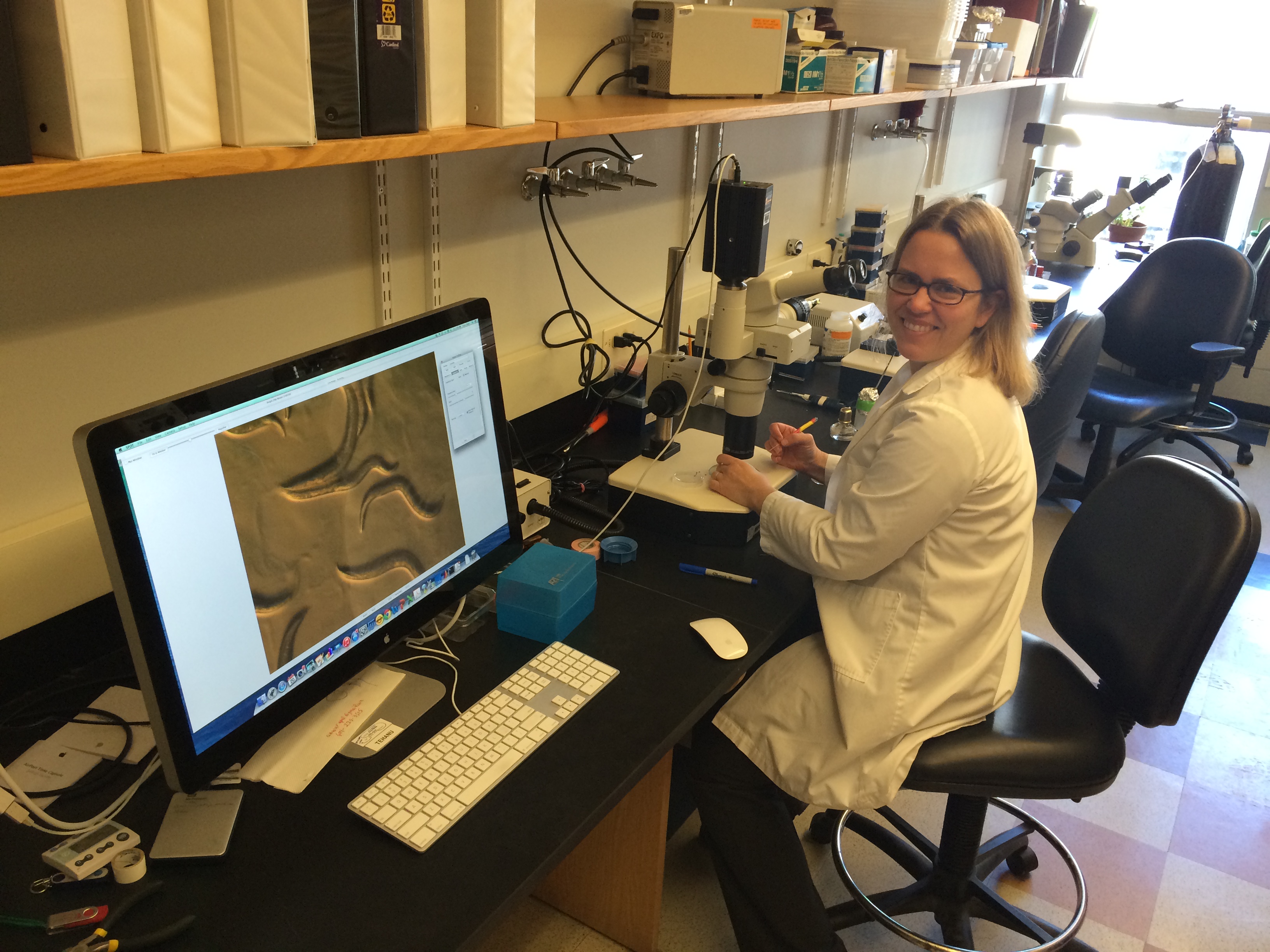Erin Cram, Associate Professor and Graduate Coordinator in Biology, sits down with the College of Science Graduate Program staff to talk about her research at Northeastern University.
Can you tell us about your current research?
We have two current projects in the lab. They’re both overlapping with engineering projects. The first is to improve production of drug compounds of a medicinal plant Madagascar periwinkle, Catharanthus roseus. It produces a lot of medicinal compounds, but the main ones we’re interested in are used to treat leukemia. It produces them at very low amounts, so the engineering goal is to increase production of this compound from plant cell cultures. The science goal, that we’re more involved with, is understanding how the cells of the plant decide to turn on these compounds. They are expensive for the plant to make, so when they are making these compounds they are not taking care of their own growth and reproduction. It’s a balance between what they’re going to use their energy for, either defense or building, kind of like how a society does. Because resources are limited, you have to decide what you’re going to do. Growth and development, or defense.
The other project has nothing to do with that. My lab is a worm lab. There are a lot of people that study these worms, C. elegans. It’s a common genetic model organism. We’re interested in how tubes of cells coordinate their behavior. We study their reproductive system, which is a tube of cells that makes baby worms. We’re interested in how that tissue forms, how it functions, and how the cells work together to produce a collective action.
What drew you to the field of biology?
Well, I kind of took a winding road. I started out as an undergraduate in art history, and I really enjoy that field. But, it didn’t seem practical, so I thought “what else do I like?” And I liked field biology, so I did most of my undergrad in organismal biology, field biology, ecology. But at the time I was doing that, I also had a work-study job in a lab that worked on cystic fibrosis, and I found that I really liked experimental molecular biology, cell biology. It felt interesting, and useful. And molecular. I think if field biology or ecology was like what it is now I probably would have stuck with that. But at the time it was much more natural history, just descriptive. Now it’s much more molecular than it was at the time. So I like the molecular aspect, and I decided to go to grad school for molecular cell biology.
What do you like most about being a faculty member at Northeastern?
My favorite thing about being a faculty member is working with the students. I really like helping students develop into scientists, at both the undergraduate and the graduate level. Finding out what they really enjoy, building skills, contributing to our joint efforts. That’s the best thing, for sure.
What do you like most about Northeastern and Boston?
I like a lot of things about Northeastern. I like the balance of a practical mindset and scholarship. I like Boston a lot. [My husband and I] really like food. We like food from all around the world. In Boston, well we live on the Cambridge side, you can eat a different country’s cuisine every night. You can go to a different restaurant every day and not hit them all. So that’s great, and we also love the music scene. Those are two things I really enjoy about living in Boston.
What advice would you give to COS graduate students?
I think people are too discouraged. I guess my advice is not to be discouraged. It’s a long process, but you can make it what you want. That’s the exciting thing about being in a graduate school program; it’s not a circumscribed set of things. It’s what you make out of it, and I think seeing that as something exciting (that you build your career into what you want it to be) should be something to be excited about. And take advantage of all of the support that Northeastern really provides. I think graduate students really aren’t aware of the level of counseling, career services, career development, and resources that the university has. There’s a bunch of new stuff over in career advising that really would benefit graduate students and help them feel like there’s a path forward to the next thing.

